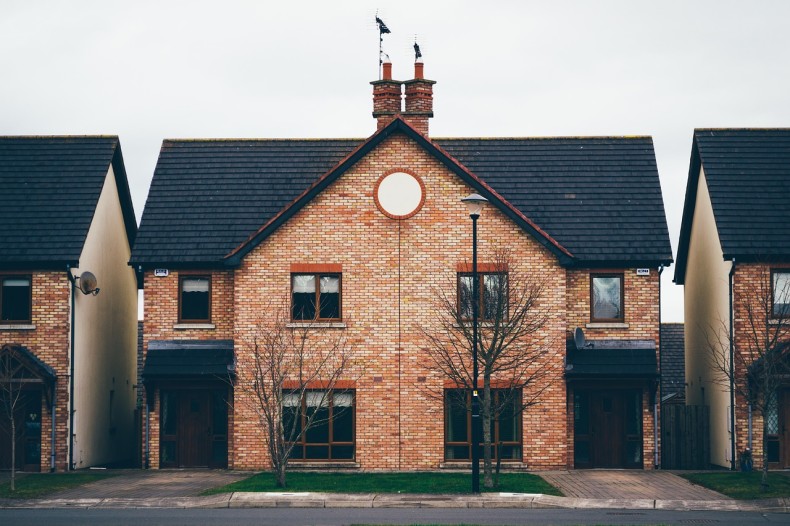Spotted in the wild: leadership candidates’ economic policies – along with more housing detail
Yesterday I ran the answers from Norman Lamb and Tim Farron to my question about Chris Rennard’s future role in the party. Today it’s the turn of the long lost economic policies of the candidates, along with housing.
On economic policy, it’s great to see both put a big emphasis on productivity – something which I’ve argued (successfully) for on Federal Policy Committee. Productivity needs to become a priority for our policy making as it’s one of the country’s major challenges, yet also an area where current policy is rather thin.
As you might be able to guess from the wording of my housing question, the evidence from housing experts who have looked at how house prices react to changes in supply is that building more homes will almost certainly not have a significant impact on house prices as it would require such an enormous number of new homes to be built. Yet the usual rhetoric is ‘prices are too high! let’s build more houses’. So are the candidates also prey to the same misguided leap from a problem to a solution that won’t fix that problem? Read on to find out…
If you’re wondering what my answer to high house prices is, I’m in David Boyle’s camp: it’s the huge increase in finance available for people to borrow that has pushed up prices. Therefore yet more schemes to make even more finance available actually worsens the problem – whilst building more homes, even if desirable on other grounds, won’t fix it either. Inflation is caused by too much money chasing too few goods – and in the case of housing the problem in the equation is too much money, so the answer is to have less money pumped into housing finance.
What’s your economic policy?

Tim Farron:
I want to stress that the members make policy – and I do not want to change that – but for me economic policy is not an obscure technical thing solely for experts. It has to start with our political aims. I want a society that is prosperous, green, humane and above all less unequal. We need to challenge the economic orthodoxies that brought us the Great Crash and which can’t cope with climate change and instead promote new economic thinking that starts from the right values.
On promoting prosperity, the highest priority now is productivity. That means supporting R&D, education and dynamic entrepreneurs – I’m passionate about small business – but it especially means infrastructure investment throughout the whole country. I want to see, for example, more high speed rail and nationwide broadband improvements. And given how low interest rates are now, we shouldn’t be afraid of borrowing for these kinds of project. But quality is important and I’d set up an independent Office of Capital Expenditure to vet projects for their effectiveness in improving national productivity.
Innovation, infrastructure and R&D also come together in promoting a green economy, from tidal and wave energy through to new efficient products. The government is now moving away from greening the economy. We need to champion it.
A more humane economy includes making sure people are respected at work. I think a return to the Liberal ideas of workplace democracy will make the country not only more humane but also more productive.
I also believe that tackling the housing crisis, with ambitious house building targets, will have very positive economic effects. I’ve said more about that in my answer to the housing question.
On inequality, we now face a government that frankly doesn’t care – the budget is a first instalment on institutionalising unfairness. I oppose unfair benefit cuts aimed at the vulnerable, especially those that hit young people, and I oppose tax cuts for the wealthy.
Norman Lamb:
First, we have paid an immense price for our five years in government. But in the process we have earned a credibility for economic responsibility that we should protect carefully. We must not lose that.
Second, this is a period of historic low interest rates. And Britain lags behind so many of her global competitors in infrastructure – whether that is on broadband, mobile phone signals, high speed rail, green energy, cycle-friendly cities, and much more. This is the best opportunity we may get for decades to borrow cheaply to fund the capital investments needed to improve our nation’s infrastructure, and we must not waste it. We should not accept the Osborne orthodoxy. We should make our own case, based on the evidence and on sound economic judgement.
Third, the biggest long-term challenge for our economy – and one that far predated the economic crisis – is our national productivity, which is low relative to other similar economies and continues to lag behind. Productivity is a key factor in determining our economic competitiveness, the inherent strength of our economy, and the quality of life of our citizens. We need to take far more decisive steps to address this. One necessary step is the infrastructure improvements I have suggested. We also need to encourage R&D investment – both public and private – through the tax system and by working with different industries to develop the industrial strategy they need. We need to improve our education system – in particular boosting STEM. It makes sense to maintain, in real terms per student, investment in education – from pre-school to college. And we need to keep championing the cause of inequality in educational attainment – which wastes the massive talent in our country as well as being morally wrong.
And finally, I want to see radical reform of our tax system, shifting the burden from the disadvantaged to the wealthy, and from income to unearned wealth. We should also advocate radical devolution of tax-raising powers. We are the most centralised of any European country in terms of where tax is raised – and this determines where the power lies.
Do you think building more houses will have a significant impact on house prices, and if not would you do something else to reduce them / their rate of increase?

Tim Farron:
Before I answer the question, I just want to make absolutely clear that the main reason we should be advocating for a major house building programme is because we are not building enough homes. We need around 300,000 homes a year to make up our current need and the backlog. Without more homes, we will not get people off waiting lists and out of horrendously overcrowded accommodation.
On house prices, if you look at it another way, no one denies that unless we build more homes, the price will continue to go up. But equally we should not be naïve enough to think that simply building homes is enough to bring the house price down. House prices are affected by a huge variety of factors – the very interested can read this for an analysis of the impact of restricted housing supply on housing prices and affordability.
A study was recently reported in the FT with the headline “Housebuilding does not drive down prices, research says.” The study in question looked for very local effects on prices, which it didn’t find, but that’s not surprising given that demand might be regional or even national. The effects of building on prices might not appear unless rates of building were significantly to change at regional or national level. The perception of where Government policy is going also has an effect on house prices, as Kate Barker noted in her 2004 report – and now we have a Government that fought against house building every step of the Coalition.
However, I am very wary of going down a rabbit hole over the issue of house prices when it is very clear that there is no silver bullet to solve the housing crisis. That’s why I’ve also been campaigning against the Right to Buy sell off, and for a major council house building programme. It’s why we need specific policies targeted at particular groups – older people, first-time buyers, renters and so on.
So three measures which I have been campaigning on immediately, we should push for:
- Stronger action on second home ownership, buy-to-let and speculative property investment (e.g. more punitive taxes).
- No right to buy for housing associations, and local control over Right to Buy policy – including the right to ban it outright.
- More purpose built accommodation targeted at specific people – for example, a major council house building programme, rent-to-own for young professionals and first time buyers, and much, much better choice and provision for older people.
On the question of supply, my 2014 Autumn Conference motion included a raft of measures which would boost house building, while going further to help with affordability.
I’ve got a bit carried away on this question (that’s the trouble with passions!) but finally I cannot stress enough that we need to sort out the appalling private rented sector. We should ban letting agents’ fees, massively increase the number of longer and more stable tenancies and look at what we can do specifically to tackle rent increases without damaging supply.
Norman Lamb:
We will need to build a vast number of houses for it to have a significant impact on prices – because demand is so much greater than supply after decades of successive failed housebuilding policies. But that shouldn’t deter us from acting – government has a clear responsibility to make sure there are enough homes for our population. I have called for significant government investment in new housebuilding – either directly or indirectly – to address this massive problem. I would like to see Government directly commissioning new build on vacant public sector land. Such homes could be let for a market rent – and income generated could contribute to the cost of new social housing.
Reducing house prices as you suggest could be intensely destabilising for the economy when so much of the financial sector is exposed to real estate investment. Our ambition needs to be to ensure that house prices consistently grow by less than wages over a very sustained period.
We also need to look at the way our financial services industry facilitates borrowing against domestic property, in particular looking at those who will lend – often with relatively poor capital to risk factors – to buy-to-let landlords owning a whole chain of investment properties. This high-risk lending behaviour inflates prices, and does nothing to help people own their own house.
But we also need to recognise that home ownership is not the only way to provide people with decent housing. Many people will never be able to afford their own house – and nor should we necessarily see that as a problem. In many European countries there are far lower levels of home ownership. We need to build more affordable houses – reducing the obstacles to borrowing for housing associations and reforming the planning system. We also should look at reform of banking regulation to encourage lenders to finance construction of new property for rent rather than financing speculation on the price of existing rental property. I also want to see tougher energy efficiency standards for all rental property – tackling climate change and saving on bills for renters.
Keep up with news on the Lib Dem leadership race
- Sign up for Liberal Democrat Newswire here, and
- Sign up for the Facebook event for the contest (where Norman Lamb and Tim Farron are regularly answering questions from members).
Leave a Reply